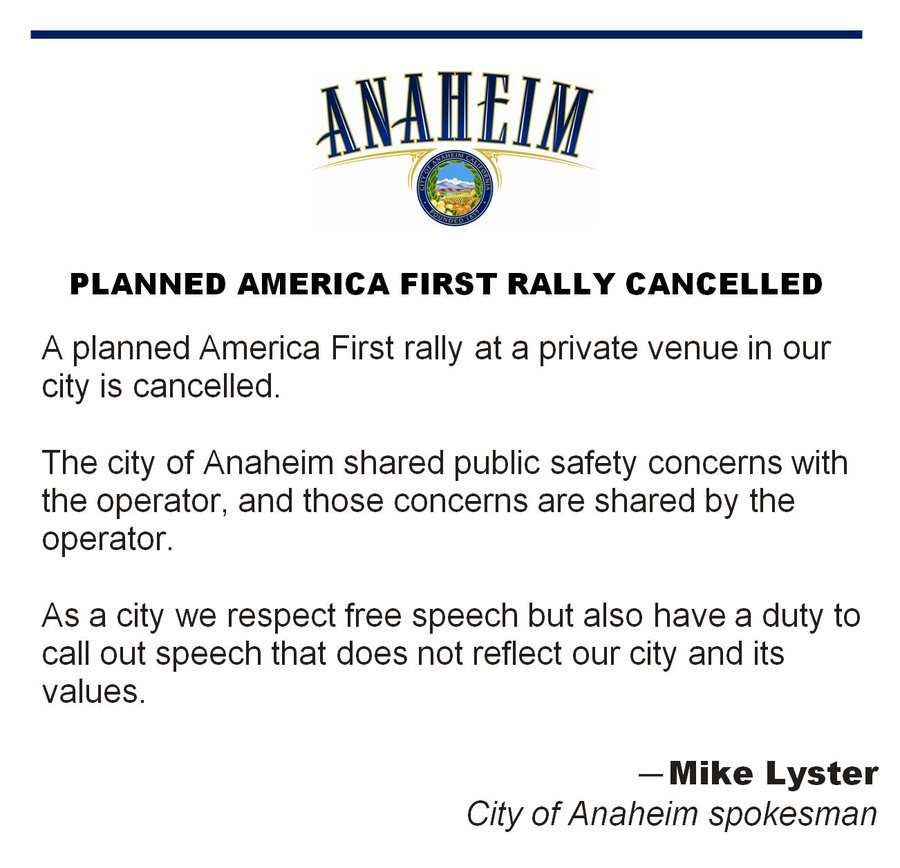The Volokh Conspiracy
Mostly law professors | Sometimes contrarian | Often libertarian | Always independent
City Announces Cancellation of "America First" Rally at Private Venue, Claims Security Threats + "Values"
From the City of Anaheim's Twitter feed:

The rally would have featured Reps. Marjorie Taylor Greene and Matt Gaetz, according to this City News Service story.
Now a private venue doesn't violate the First Amendment by cancelling a rally based on "public safety concerns." (The cancellation might be a breach of contract, depending on whether or not the contract has a provision for that.) And it isn't generally a First Amendment violation for government officials to simply try to persuade private parties not to participate in distributing certain kinds of speech (see, e.g., Hammerhead Enterprises, Inc. v. Brezenoff (2d Cir. 1983), Penthouse Int'l Ltd. v. Meese (D.C. Cir. 1991), and X-Men Security, Inc v. Pataki (2d Cir. 1999)).
But when the government tries to coerce private entities into suppressing speech, that may well violate the speakers' First Amendment rights (see, e.g., Rattner v. Netburn (2d Cir. 1991), Okwedy v. Molinari (2d Cir. 2003), and Backpage, Inc. v. Dart (7th Cir. 2015)). So the questions are: When a city "share[s] public safety concerns" about a speech with a private venue, and then publicly announces the cancellation of the event with the statement, "As a city we respect free speech but also have a duty to call out speech that does not reflect our city and its values,"
- Do you think there was likely any coercive pressure exercised by the city against the venue?
- If this had been, say, a Socialist rally that was cancelled with Reps. Alexandria Ocasio-Cortez and Rashida Tlaib, with the same public statement, what would your inference be?
- Say the City of Anaheim had indeed simply passed along some information about threats against the speakers or the venue, i.e., concrete "public safety concerns" rather than just abstract ones. Indeed, say that it even gave the venue the assurance that it would of course do all it can to protect the rally—contrary as the speech is to "our city and its values"—if the venue continued to host the event. (I have no idea if such assurances were offered.) Do you think this sort of reaction by the city is likely to encourage future threats of violence against future controversial speeches, discourage them, or have no effect?


Show Comments (341)